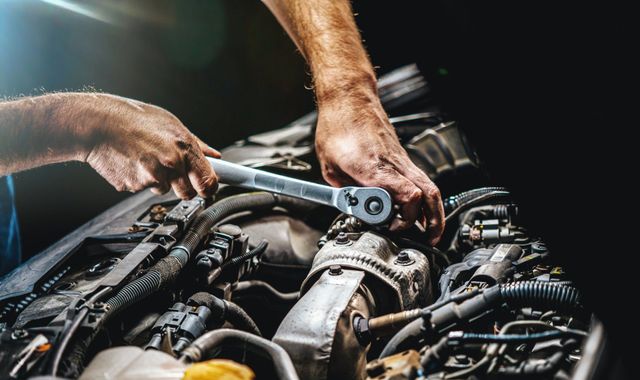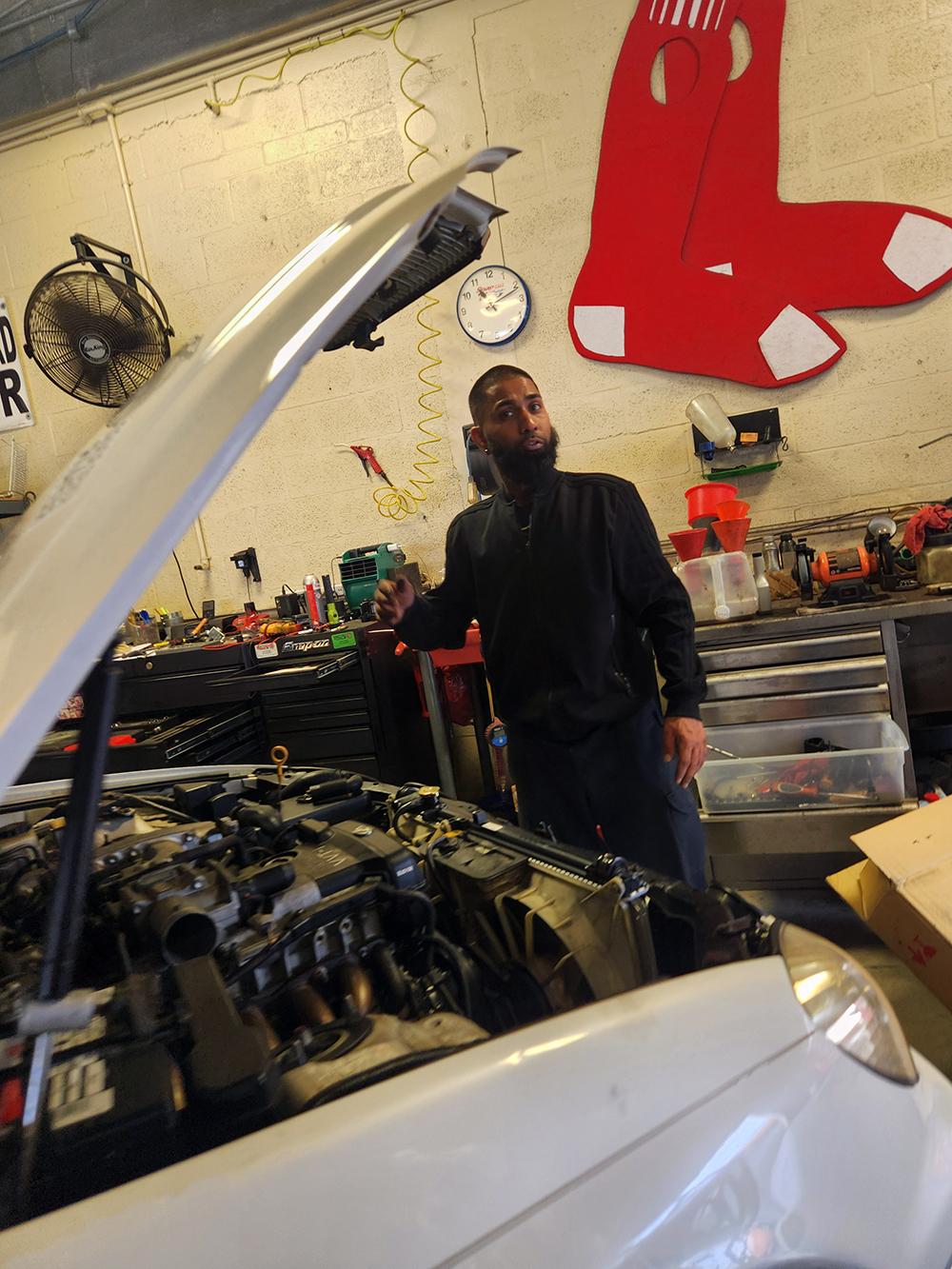Featured
When your auto gets too hot, it can seem like a significant emergency, yet remaining tranquil and complying with the appropriate steps can stop severe engine damage and help obtain you back on the roadway securely. In this message, we'll discover what to do if your vehicle overheats and offer preventative tips to reduce the risk of overheating in the future.
If Your Vehicle Gets too hot,What to Do. Draw Over to a Safe Location The first and most essential step if your vehicle starts to overheat is to draw over to a secure place as quickly as feasible. Turn on your threat lights and direct your car to the shoulder or right into a car park. Maintaining your vehicle running while it's overheated can trigger severe damages to the engine, so it's essential to shut the engine off immediately.
Let the Engine Cool Once you have actually safely stopped, allow the engine to cool. You must never try to open the radiator cap while the engine is still hot, as the release of vapor or hot coolant can create burns. Wait a minimum of 15-20 minutes to permit the engine temperature to drop to a much safer degree prior to proceeding.
![]()
Examine the Coolant Level After the engine has cooled down, examine the coolant degrees by examining the storage tank or radiator. Leading it off with a mix of coolant and water (as defined by your vehicle's producer) if it's reduced. Constantly utilize caution when opening up the coolant reservoir, as stress may have accumulated.
Search For Visible Leaks While you wait on the engine to cool down, aesthetically evaluate the radiator, hose pipes, and coolant reservoir for any kind of visible leaks or cracks. A leaking radiator or tube is an usual reason for getting too hot. If you find a considerable leakage, it's far better to call a tow service than risk driving even more and creating additional damage.
Restart the Engine After allowing the engine to cool and ensuring the coolant is topped off, begin the engine and keep an eye on the temperature scale. If the temperature level proceeds to increase rapidly, it's best to shut the engine off and ask for roadside support or a tow to the closest mechanic.
![]()
Exactly How to Avoid Overheating in the Future. Frequently Examine Coolant Degrees Among the most convenient ways to prevent overheating is by maintaining the right degree of coolant. In time, coolant can vaporize, so consistently inspect the coolant degrees in the reservoir. Reduced coolant degrees can create the engine to overheat promptly, so leading it off as required.
Inspect the Radiator The radiator plays a crucial duty in maintaining the engine cool. Periodically examine the radiator for any obstructions, dust, or debris that could obstruct air movement. If you see any type of indicators of damage, such as rust or leaks, have it fixed or replaced immediately.
Change the Thermostat and Water Pump A malfunctioning thermostat or water pump is a typical source of getting too hot. The thermostat manages the flow of coolant, while the water pump distributes it via the engine. It can stop appropriate air conditioning if either part is damaged. When required., have your mechanic check these components regularly and change them.
Flush the Air conditioning System With time, coolant can break down and come to be inefficient, creating a buildup of debris in the system. Purging the air conditioning system every 30,000 miles, or as advised in your car's guidebook, helps to remove any type of sludge or buildup and guarantees the cooling system is working properly.
Monitor the Problem of the Hoses The hose pipes in your vehicle's air conditioning system can wear or fracture gradually. Check the hoses for any kind of indications of wear, such as bulging, splits, or leakages, and change them if required. Protecting against coolant leaks can go a long way in preventing getting too hot.
![]()
Drive Properly Aggressive driving, such as accelerating rapidly or driving at high speeds, places added stress on your engine and its cooling system. Try to drive at moderate rates, specifically on hot days or when driving on steep inclines, to reduce the possibilities of overheating.
Avoid Straining Your Automobile Bring extreme weight in your car places anxiety on the engine and cooling system. Constantly be conscious of your vehicle's weight limitation, specifically if you're hauling heavy tons, towing a trailer, or driving fars away in heat.
Verdict. A getting too hot cars and truck can be a frightening experience, however recognizing how to react and prevent it can conserve you time, cash, and potential engine damage. Always check your coolant degrees, examine vital components like the radiator, thermostat, and tubes, and adhere to a regular upkeep schedule. By staying on top of your automobile's air conditioning system, you can lower the threat of getting too hot and appreciate a smoother, safer driving experience.
If Your Vehicle Gets too hot,What to Do. Draw Over to a Safe Location The first and most essential step if your vehicle starts to overheat is to draw over to a secure place as quickly as feasible. Turn on your threat lights and direct your car to the shoulder or right into a car park. Maintaining your vehicle running while it's overheated can trigger severe damages to the engine, so it's essential to shut the engine off immediately.
Let the Engine Cool Once you have actually safely stopped, allow the engine to cool. You must never try to open the radiator cap while the engine is still hot, as the release of vapor or hot coolant can create burns. Wait a minimum of 15-20 minutes to permit the engine temperature to drop to a much safer degree prior to proceeding.

Examine the Coolant Level After the engine has cooled down, examine the coolant degrees by examining the storage tank or radiator. Leading it off with a mix of coolant and water (as defined by your vehicle's producer) if it's reduced. Constantly utilize caution when opening up the coolant reservoir, as stress may have accumulated.
Search For Visible Leaks While you wait on the engine to cool down, aesthetically evaluate the radiator, hose pipes, and coolant reservoir for any kind of visible leaks or cracks. A leaking radiator or tube is an usual reason for getting too hot. If you find a considerable leakage, it's far better to call a tow service than risk driving even more and creating additional damage.
Restart the Engine After allowing the engine to cool and ensuring the coolant is topped off, begin the engine and keep an eye on the temperature scale. If the temperature level proceeds to increase rapidly, it's best to shut the engine off and ask for roadside support or a tow to the closest mechanic.

Exactly How to Avoid Overheating in the Future. Frequently Examine Coolant Degrees Among the most convenient ways to prevent overheating is by maintaining the right degree of coolant. In time, coolant can vaporize, so consistently inspect the coolant degrees in the reservoir. Reduced coolant degrees can create the engine to overheat promptly, so leading it off as required.
Inspect the Radiator The radiator plays a crucial duty in maintaining the engine cool. Periodically examine the radiator for any obstructions, dust, or debris that could obstruct air movement. If you see any type of indicators of damage, such as rust or leaks, have it fixed or replaced immediately.
Change the Thermostat and Water Pump A malfunctioning thermostat or water pump is a typical source of getting too hot. The thermostat manages the flow of coolant, while the water pump distributes it via the engine. It can stop appropriate air conditioning if either part is damaged. When required., have your mechanic check these components regularly and change them.
Flush the Air conditioning System With time, coolant can break down and come to be inefficient, creating a buildup of debris in the system. Purging the air conditioning system every 30,000 miles, or as advised in your car's guidebook, helps to remove any type of sludge or buildup and guarantees the cooling system is working properly.
Monitor the Problem of the Hoses The hose pipes in your vehicle's air conditioning system can wear or fracture gradually. Check the hoses for any kind of indications of wear, such as bulging, splits, or leakages, and change them if required. Protecting against coolant leaks can go a long way in preventing getting too hot.

Drive Properly Aggressive driving, such as accelerating rapidly or driving at high speeds, places added stress on your engine and its cooling system. Try to drive at moderate rates, specifically on hot days or when driving on steep inclines, to reduce the possibilities of overheating.
Avoid Straining Your Automobile Bring extreme weight in your car places anxiety on the engine and cooling system. Constantly be conscious of your vehicle's weight limitation, specifically if you're hauling heavy tons, towing a trailer, or driving fars away in heat.
Verdict. A getting too hot cars and truck can be a frightening experience, however recognizing how to react and prevent it can conserve you time, cash, and potential engine damage. Always check your coolant degrees, examine vital components like the radiator, thermostat, and tubes, and adhere to a regular upkeep schedule. By staying on top of your automobile's air conditioning system, you can lower the threat of getting too hot and appreciate a smoother, safer driving experience.
Latest Posts
How to Build Farm Fencing: A Comprehensive Guide for Beginners
Published Jan 08, 25
3 min read
Explore Red Hawk Gastropub: A Feast for the Senses
Published Jan 08, 25
1 min read
What to Expect Throughout a Comprehensive Car Diagnostic Service
Published Jan 08, 25
0 min read